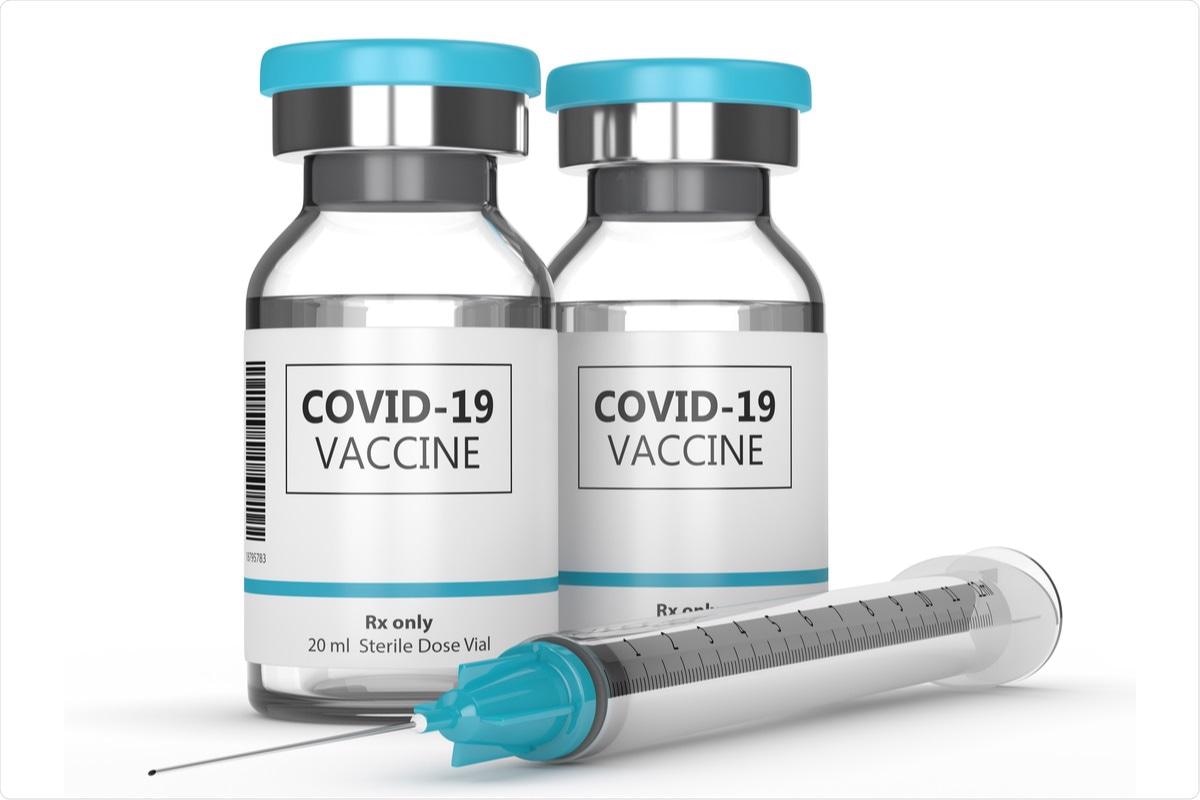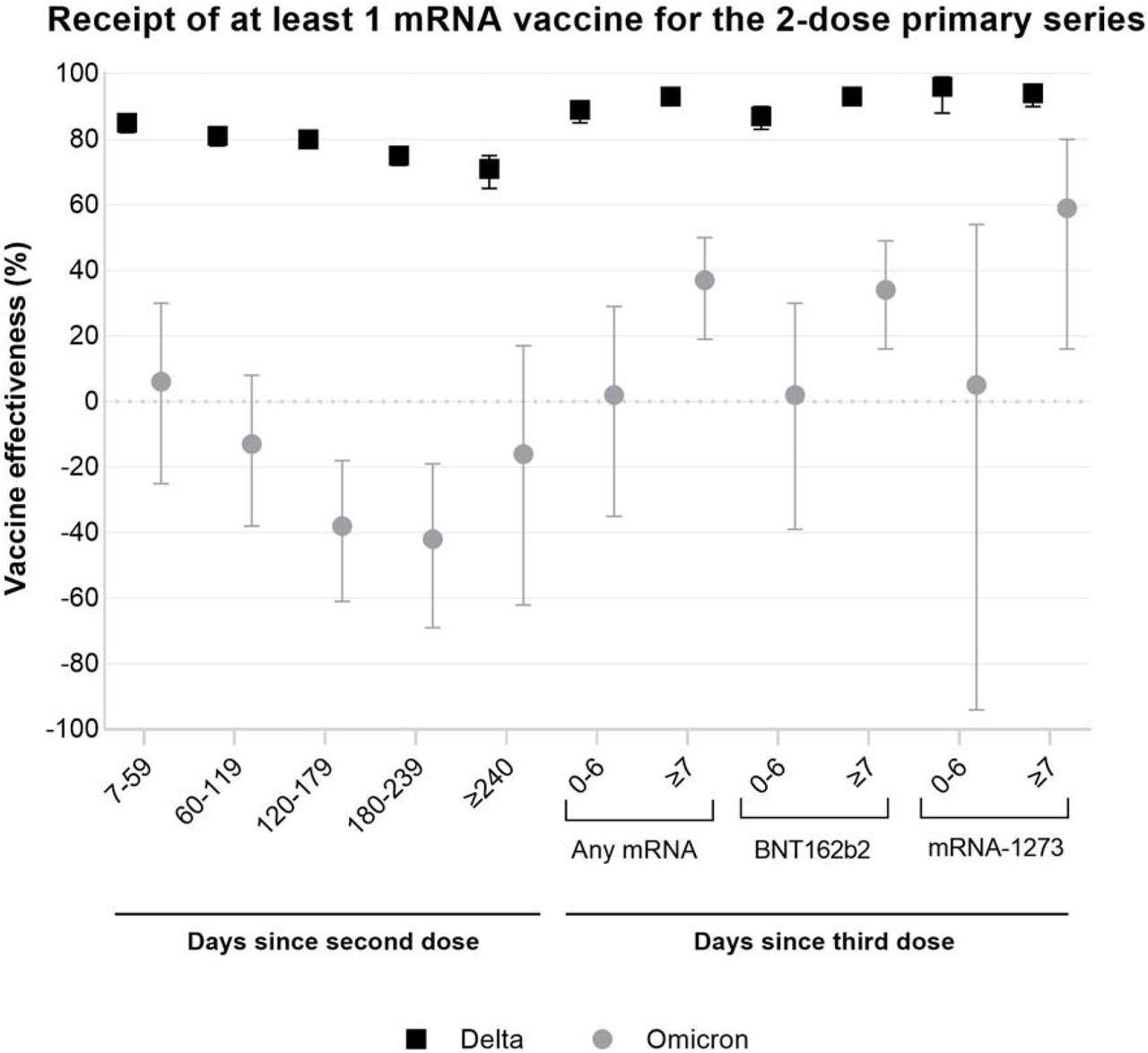Since the first case of the SARS-CoV-2 Omicron variant was detected in Ontario, Canada, a sharp increase in SARS-CoV-2 infections was noted, even in fully vaccinated individuals. Reduction in neutralizing antibodies against the Omicron variant after individuals have received both their second and third vaccine doses has already been reported in many studies. The current study aims to estimate vaccine effectiveness (VE) against the SARS-CoV-2 Omicron variant over varying periods of time after vaccination.

Study: Effectiveness of COVID-19 vaccines against Omicron or Delta infection. Image Credit: Aleksandra Gigowska / Shutterstock.com

 This news article was a review of a preliminary scientific report that had not undergone peer-review at the time of publication. Since its initial publication, the scientific report has now been peer reviewed and accepted for publication in a Scientific Journal. Links to the preliminary and peer-reviewed reports are available in the Sources section at the bottom of this article. View Sources
This news article was a review of a preliminary scientific report that had not undergone peer-review at the time of publication. Since its initial publication, the scientific report has now been peer reviewed and accepted for publication in a Scientific Journal. Links to the preliminary and peer-reviewed reports are available in the Sources section at the bottom of this article. View Sources
About the study
The present study investigated the effectiveness of COVID-19 vaccines against the Omicron variant based on data from Ontario, Canada. Individuals who were vaccinated with at least two COVID-19 vaccine doses, including at least one messenger ribonucleic acid (mRNA) vaccine dose, were included in the study.
Test negative design and provincial data were used to estimate VE. Individuals aged at least 18 years of age who were reverse transcriptase-polymerase chain reaction (RT-PCR) positive for SARS-CoV-2 were included.
Individuals who had received only one dose of any COVID-19 vaccine or a second vaccine dose less than seven days before the study began were excluded from the study. Individuals who had received ChAdOx1 were also excluded.
Among the individuals who were positive for SARS-CoV-2, Omicron and Delta infection cases were segregated using whole-genome sequencing. The main difference between the specimens for the two variants is that Omicron infections were sequenced as the B.1.1.529 lineage and were found to have S-gene Target Failure (SGTF), whereas Delta infections were sequenced as the B.1.617 lineage and tested negative for SGTF.
Study findings
A total of 3,442 Omicron-positive cases, 9,201 Delta-positive cases, and 471,545 test-negative controls were reported in the current study. As compared to the control group, individuals with Omicron infections were younger at 34.9 years versus 45.0 years, respectively.

Vaccine effectiveness against infection by Omicron or Delta among adults aged ≥18 years by time since latest dose
Furthermore, these individuals were less likely to have any comorbidities and to have undergone multiple SARS-CoV-2 tests. Omicron-positive individuals were also likely to have received two doses of the COVID-19 vaccine but were less likely to have received the third dose.
Delta cases, on the other hand, were more likely to occur in older people and in individuals suffering from comorbidities. They were also more likely to be unvaccinated at 33.1% versus. 7.5%, respectively, and more likely to have received less than two or three vaccine doses.
VE against the Delta variant after a minimum of two doses of COVID-19 vaccines was found to decrease over time from 84% seven to 59 days after the second dose to 71% at or after 240 days of the second dose. However, VW improved to 93% seven days or more after the third dose of an mRNA vaccine.
In individuals with Omicron infection, a minimum of two doses of COVID-19 vaccines did not provide effective protection. The VE was found to reduce steadily after the second dose from –38% at 120-179 days and –42% at 180-239 days. However, after receiving the third dose of an mRNA vaccine, the VE against Omicron improved to 37% at least seven days after the vaccination.
Conclusions
The study findings conclude that the VE of two doses of COVID-19 vaccines against Omicron infections is considerably lower than that against Delta infections. VE against Omicron infection only slightly improved to 37% after the third dose of an mRNA vaccine. Taken together, VE against Omicron and Delta variants showed a similar increase after the administration of the third dose of an mRNA vaccine.
According to the authors, fully vaccinated individuals who have received two doses of COVID-19 vaccines are more likely to be exposed to the new variant, since an Ontario vaccine certificate would permit fully vaccinated individuals to travel by air and rail and allow access to various social settings like restaurants. Thus, individuals who have received two doses of vaccines can no longer be considered fully vaccinated, which will limit the exposure of vaccinated individuals to the Omicron variant.
Further studies are required to determine how many doses are needed to provide adequate protection against the Omicron variant. The authors added that a vaccination status cannot be considered sufficient as a mark of effective protection against newly emerging variants of SARS-CoV-2.

 This news article was a review of a preliminary scientific report that had not undergone peer-review at the time of publication. Since its initial publication, the scientific report has now been peer reviewed and accepted for publication in a Scientific Journal. Links to the preliminary and peer-reviewed reports are available in the Sources section at the bottom of this article. View Sources
This news article was a review of a preliminary scientific report that had not undergone peer-review at the time of publication. Since its initial publication, the scientific report has now been peer reviewed and accepted for publication in a Scientific Journal. Links to the preliminary and peer-reviewed reports are available in the Sources section at the bottom of this article. View Sources
Journal references:
- Preliminary scientific report.
Buchan, S. A., Chung, H., Brown, K. A., et al. (2021). Effectiveness of COVID-19 vaccines against Omicron or Delta infection. medRxiv. doi:10.1101/2021.12.30.21268565. https://www.medrxiv.org/content/10.1101/2021.12.30.21268565v1.
- Peer reviewed and published scientific report.
Buchan, Sarah A., Hannah Chung, Kevin A. Brown, Peter C. Austin, Deshayne B. Fell, Jonathan B. Gubbay, Sharifa Nasreen, et al. 2022. “Estimated Effectiveness of COVID-19 Vaccines against Omicron or Delta Symptomatic Infection and Severe Outcomes.” JAMA Network Open 5 (9): e2232760–60. https://doi.org/10.1001/jamanetworkopen.2022.32760. https://jamanetwork.com/journals/jamanetworkopen/fullarticle/2796615.